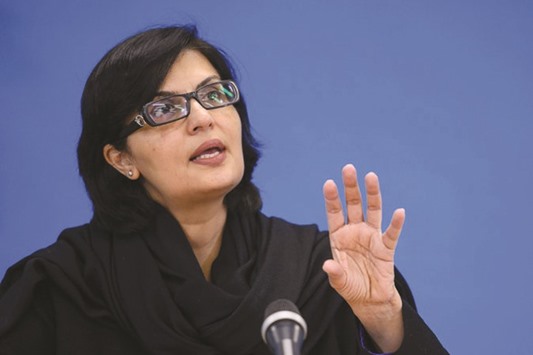With important votes taking place in France, Britain and Germany in the next six months, the upcoming election of the next head of the World Health Organisation (WHO) might not have fully registered with everyone. In this unprecedented election, all 194 countries from around the world will gather in Geneva to choose the global path for health in the next five years.
In my former roles as Federal Health Secretary and Minister of Health in Pakistan, I worked closely with WHO representatives at the national, regional, and global levels. I have seen first-hand the tremendous value WHO brings to promoting health around the world.
I vividly remember a time when smallpox killed and disfigured people in many countries around the world. This terrible disease will never ruin another life thanks in large part to the contributions of WHO. We are closer than ever to relegate polio to the history books as well. The organisation’s promotion of exclusive breastfeeding, oral rehydration therapy, and immunisation have also helped to save millions of children’s lives.
I have always regarded WHO as a symbol of all that is ethical, caring and service delivery oriented in the international arena. However, a question has always arisen in my mind: how to enhance WHO’s relevance in an epoch of growing turbulence and escalating threats? How can WHO become more stabilising, confidence-imparting and problem solving? Enhanced effectiveness would entail an ability to provide the right advice and offer the right service at the right time across the world.
There comes a time in the life of every organisation when it must have a deep, hard look at itself, to diagnose its central gaps and determine a clear way forward that is both practical and visionary. I can say as an old friend of WHO that that time is here - now. WHO needs to map out key areas of action and plot out significant innovations and improvements in terms of policy and strategy. For this, it is essential to make the leadership choice without regard for considerations of regionalism, localism or loyalty.
In my view, a taxonomy of positions held in the past will not suffice. The point is to break fresh ground, not simply secure the status quo. Nor is rhetoric likely to provide any lasting cure. I have no doubt that each of the three candidates in the field possesses significant skills to help WHO tackle its future challenges.
However, basing my opinion on their election statements, I urge the World Health Assembly to choose the best candidate who not only represents the most effective governance skill, but also reflects the strongest will to implement a much-needed reform agenda. That candidate in my view is Dr Sania Nishtar.
Dr Nishtar may be a woman and from one of the three WHO regions, from which a WHO DG has never been appointed. But the only reason why she should get the job is because she is the best person for the job.
Dr Nishtar and I have worked in tandem in Pakistan’s health and development sectors over many decades. She has played a powerful civil society role in Pakistan to effect change, institutionalise accountability and promote public-private partnerships. Amongst other areas, she transformed Pakistan’s Lady Health Workers into a community health and women empowerment cadre at the rural grassroots. Dr Nishtar pioneered government-civil society collaboration at both policy and operational levels. Her inter-sectoral competencies have been tried and tested. Her international experience blends with an awareness of ground realities.
Dr Nishtar has provided effective cross-sectoral leadership as minister in-charge of several nation-building and service-providing departments, including health. She has a reputation for high integrity and has championed transparent and accountable governance. And when Pakistan’s Federal Health Ministry was abolished on constitutional grounds, she performed the miracle of restoring it through wisdom and tenacity.
While her experience speaks volumes, I believe it is Dr Nishtar’s leadership skills that make her most suited to be the next Director-General. She has looked at health challenges through multiple lenses. From how to practically reform Pakistan’s health system to how do we tackle the global epidemic of childhood obesity, she has brought disparate groups together to plot a new path forward. She has articulated her vision of institutional reforms for the Organisation. Institutionalising reform holds out the best hope for achieving sustainability of SDGs and facing emerging challenges in global health.
Before the world is hit by the next pandemic, I implore all member states to consider the important reforms that are needed to ensure that the global health system is up to par. I hope Dr Sania Nishtar is afforded an opportunity to lead the much-needed reform process at WHO.
*The writer is the former Federal Health Secretary and Federal Minister of Health in Pakistan

STRONG CASE: Dr Sania Nishtar’s leadership skills make her most suited to be the next Director-General, says the author.
